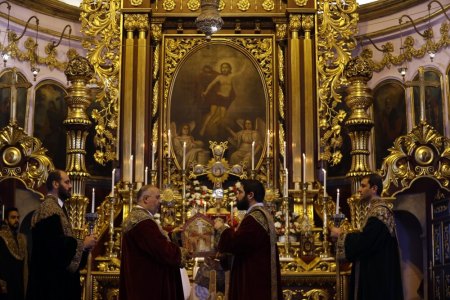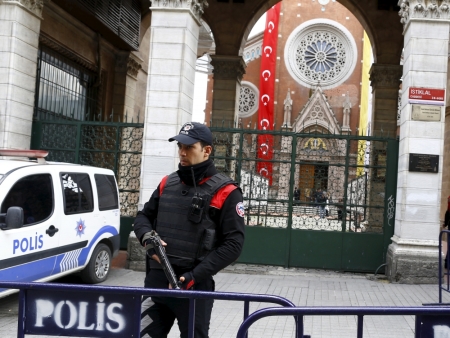Turkey Seizes Last 6 Christian Churches in Diyarbakir as 'State Property'

The Turkish government has seized the last remaining Christian churches in the war-torn southeastern city of Diyarbakir and declared them as state property.
World Watch Monitor reports that the administration of Turkish President Recep Tayyip Erdoğan has expropriated sections of property throughout Diyarbakir on the grounds that it will rebuild and restore the historical center of the city following 10 months of urban conflict.
Included in seizures are Catholic, Protestant and Orthodox churches. But now, the churches, one of which is over 1,700 years old, effectively become state property in a country where about 98 percent of the population is Muslim.
The expropriation order came on March 25 and was issued by Erdoğan's council of ministers.
Assyrians, Armenians, Chaldeans and Turkish Christian converts have not been able to access their churches for the better part of the last year because of the ongoing conflict between Turkish armed forces and the Kurdish Workers' Party.

Despite not being able to access their churches, the government's decisions to seize the church properties has led to outrage among the Armenian, Syriac and Chaldean communities and a number of church foundations are preparing to take legal action against the decision, the Turkish-Armenian news outlet Agos reports.
In light of the backlash from the Christian community, the government claims there were no religious motives because the government also expropriated a number of historic mosques in the town. World Watch Monitor points out that mosques in Turkey are state funded, while church foundations have to maintain the Christian churches.
Although the government claims that it is expropriating the properties to rebuild and repair them, Ahmet Guvener, pastor of Diyarbakir Protestant Church, believes the government is expropriating the churches with the sole purpose of taking the property.
"The government didn't take over these pieces of property in order to protect them," Guvener told World Watch Monitor. "They did so to acquire them."
Guvener explained that he is also thinking of filing a lawsuit against the government. Should his litigation fail in Turkish courts, he said he's prepared to appeal to the European Court of Human Rights.
According to World Watch Monitor, local government officials are also critical of the decision, claiming that the expropriations lack legal justification and can cause cultural damage to the town. The municipal officials are encouraging the owners of the churches to take legal action.
The Diyarbakir Bar Association is the first group to officially file an appeal against the government's action.
"Among the expropriated plots, there are structures belonging to public institutions ... and places of worship and residences considered as historical and cultural heritage," a statement provided to Agos reads. "This decision, which seems to be made by the request of the Ministry of Environment and Urban Planning without any reason or justification, is unacceptable within the limits of constitutional order."
Even though the ongoing conflict has largely kept worshipers from holding services in the churches, some are starting to hold Sunday services again.





















